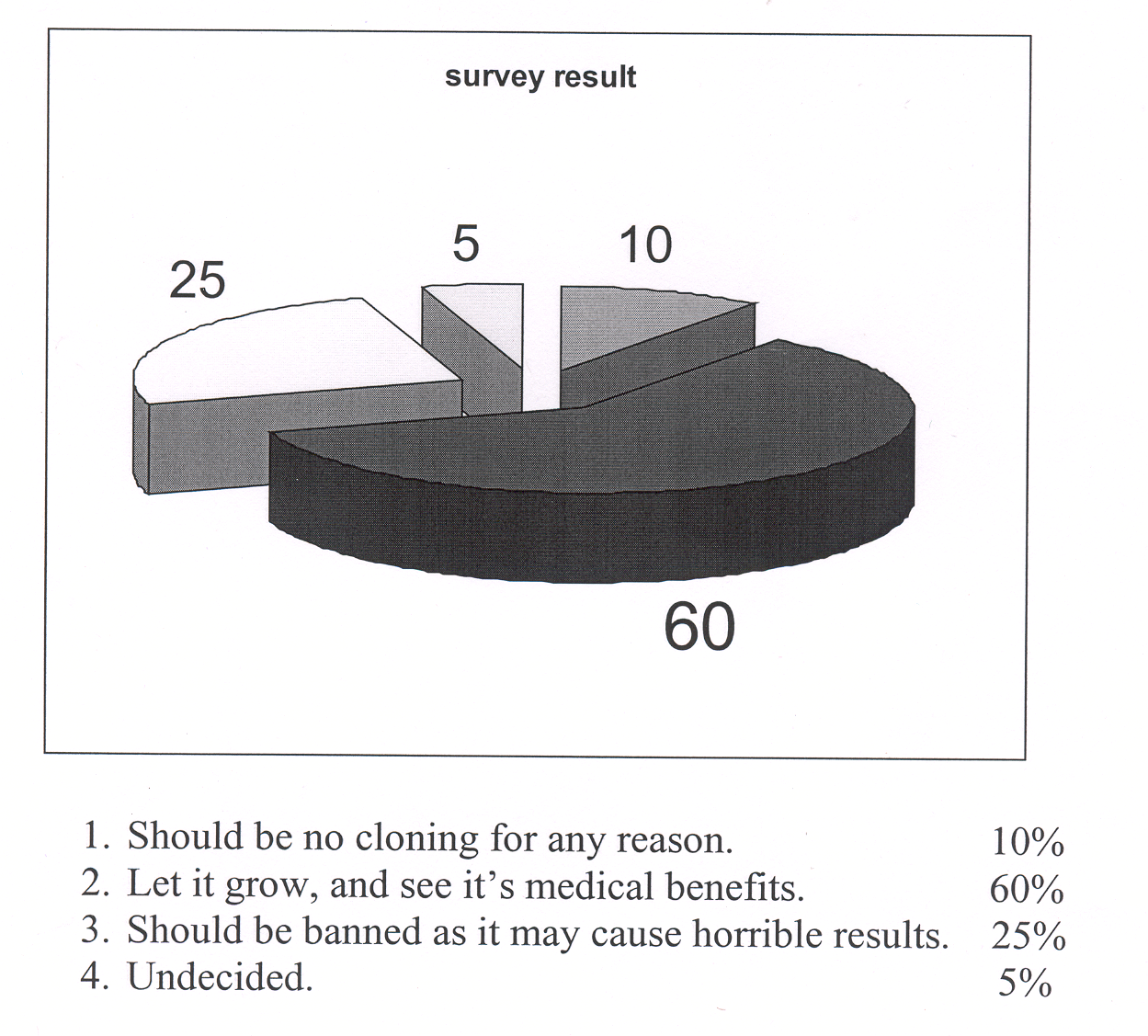Short Description Of Projects
ETHICAL ISSUES IN HUMAN CLONING
![]()
Submitted By:
Abhishek Dwivedi (99012 , ME)
Abhishek Nigam (99018, ME)
Prashant Kumar (99274,CE)
Course Instructor: Dr. Amit Ray
INTRODUCTION:
It was the bleat heard round the world: a lamb just like another, but created unlike any before it. Possessing her mother's nose and eyes -- and exact DNA composition -- the 10-month-old ewe is both the result of years of research and the realization of science fiction fantasies. And with the birth announcement by Scottish scientists that they had cloned an adult sheep, the final threshold in reproductive technology has been crossed. The implications of this act once thought impossible are staggering because, for the first time, scientists truly have within their grasp the ability to clone human beings.
Of course cloning is scary: Add a dollop of imagination to a test tube of "treated" cells, and you have a recipe for disaster. But let's get real. Most technological advances are met, initially, with resistance: Every technical advance, from the inception of the industrial age to the invention of the automobile, has provoked its share of fear and loathing. In the end, cloning, like these other advances, will join the march of technology that has empowered the society we inhabit today.
RESULT OF SURVEY:


CONCLUSION
While working on this topic we tried to understand the ensuing debate on the topic of human cloning, the misnomers and the hyped facts. We have seen that the picture produced in the minds of common people is mainly inspired by mass media and sci - fi genre of movies. People think that cloning is just about producing individuals as carbon copy of their donors, which in itself is far from the complete picture. People have to be made aware that human cloning is about producing cells too (known as therapeutic cloning). More so by hearing points of both side of the able we have come to the conclusion that we should continue with the stem research part, which can led to the cure of diseases like cancer in future. We should not go for producing individuals because mankind at present is not mature enough to deal with any problems arising out
of it. If any parents want to "clone" a child for them then they should be equally happy with a child obtained with artificial insemination.
Through the surveys we conducted we have come to the conclusion that human cloning for the purpose of stem cell research should continue and in future it will definitely pave a way for us to understand that whether we should clone individual or not.